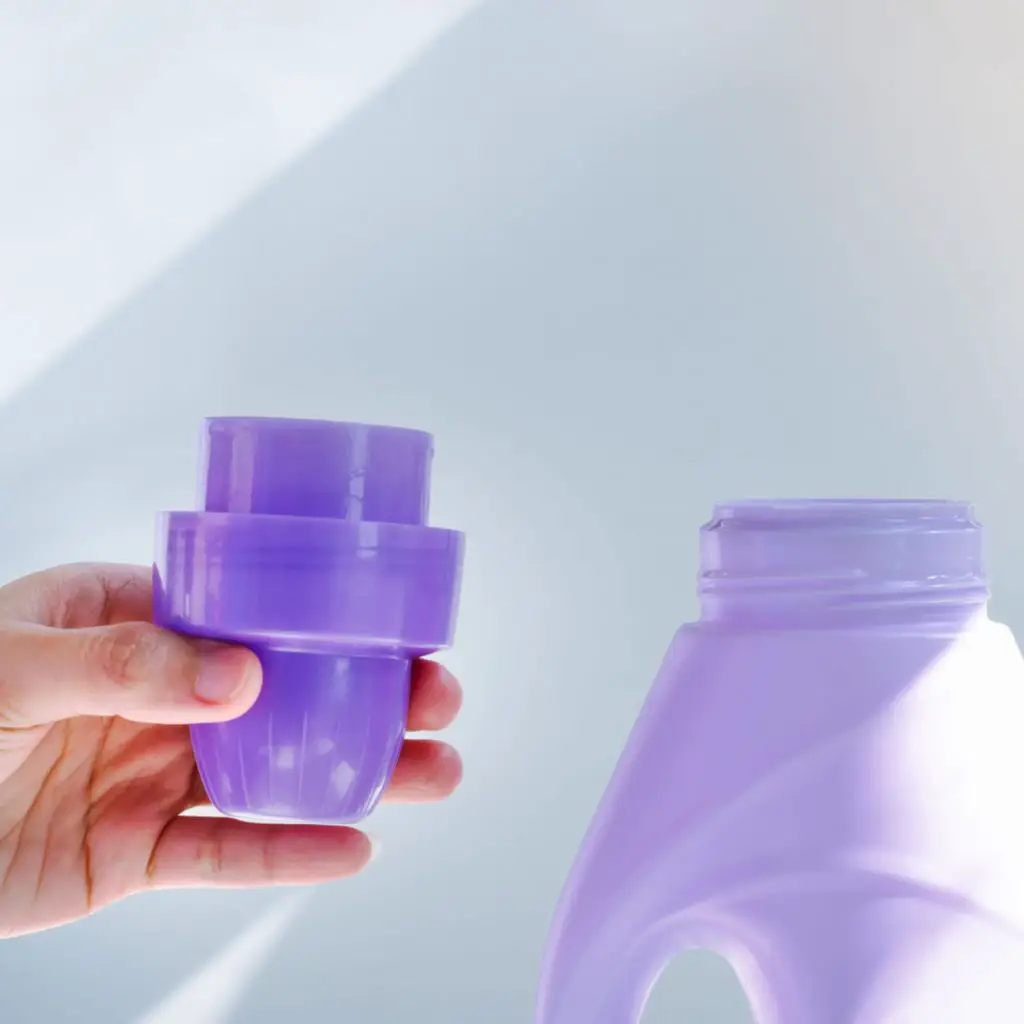Are you tired of dealing with mysterious oil stains on your laundry? You're not alone. In fact, studies show that over 60% of people have experienced this frustrating issue.
Understanding the source of these pesky stains can help you prevent them in the future. From washing machine malfunctions to fabric softener residue, various factors can contribute to oil stains on your clothes. By identifying the root cause, you can take proactive steps to keep your laundry oil-free.
In this guide, we'll explore the common culprits behind mysterious oil stains and provide practical solutions for keeping your clothes clean and stain-free.
Key Takeaways
- Oil stains on laundry can come from residue buildup in the washing machine and fabric softener.
- Excessive use of fabric softener can also result in fabric softener residue on clothes.
- Body lotions and creams can transfer oils onto clothes, especially on fabrics like silk or satin.
- Oil stains can also come from kitchen spills, mechanical issues in appliances, and automotive leaks. Regular maintenance and prompt attention are important to prevent these stains.
Oil Stains From Washing Machine
If you're finding mysterious oil stains on your laundry, the washing machine could be the culprit. Preventing residue buildup in your washing machine is essential to avoid these pesky oil stains on your clothes. Regular maintenance and cleaning of your washing machine can help prevent this issue.
To prevent residue buildup, make sure to use the right amount of detergent and avoid using too much fabric softener, as this can leave a greasy residue in the machine. Additionally, using hot water and running an empty cycle with vinegar can help dissolve any buildup.
When it comes to cleaning techniques, wiping down the drum, door, and gasket after each wash can help prevent the accumulation of oil and detergent residue. Also, regularly cleaning the detergent dispenser and running a cleaning cycle with a washing machine cleaner can help keep your machine free from residue buildup.
Oil Stains From Fabric Softener
If you've been noticing mysterious oil stains on your laundry, it's important to consider the fabric softener you're using. Fabric softener residue can sometimes leave behind greasy marks on your clothes, especially if you're using too much of it.
To prevent this, it's crucial to use the right amount of fabric softener and to regularly clean your washing machine to avoid any build-up.
Fabric Softener Residue
One common cause of mysterious oil stains on laundry is fabric softener residue. This can result from using too much fabric softener in the washing machine. Fabric softener build-up occurs when the product isn't fully rinsed away during the wash cycle.
To prevent fabric softener residue, ensure you're using the recommended amount of the product. Alternatively, consider using fabric softener alternatives such as wool dryer balls, white vinegar, or baking soda. These alternatives are effective in softening fabrics and reducing static cling while also being more environmentally friendly.
Avoid Overuse of Softener
To prevent fabric softener residue and the resulting oil stains on your laundry, ensure you're using the recommended amount of the product and consider alternative options such as wool dryer balls, white vinegar, or baking soda. Overusing fabric softener can lead to an accumulation of residue on your clothes, resulting in mysterious oil stains that are difficult to remove.
Here are some fabric care tips to avoid this issue:
- Softener alternatives: Consider using wool dryer balls instead of liquid fabric softener to fluff and soften your laundry without the risk of oil stains.
- Measure carefully: Use the recommended amount of fabric softener specified on the product label to prevent excessive buildup on your clothes.
- White vinegar or baking soda: Add a half cup of white vinegar or baking soda to the rinse cycle as a natural alternative to fabric softener.
Proper Machine Cleaning
To ensure that your washing machine is free from fabric softener residue that can cause mysterious oil stains on your laundry, regularly clean the dispenser and drum with hot water and vinegar. Use a cloth soaked in the hot water and vinegar solution to wipe down the inside of the dispenser, and run an empty hot water cycle with a cup of vinegar in the drum to clean out any remaining residue. Here are some cleaning techniques and product recommendations to effectively clean your washing machine:
| Cleaning Techniques | Product Recommendations |
|---|---|
| Wipe down the dispenser and drum with hot water and vinegar solution | White vinegar |
| Run an empty hot water cycle with a cup of vinegar | Baking soda |
| Use a washing machine cleaner product | Citric acid |
Regular maintenance using these cleaning techniques and products will help prevent fabric softener residue buildup and the resulting oil stains on your laundry.
Oil Stains From Body Lotions and Creams
When you use body lotions and creams, the oils they contain can transfer onto your clothing, causing stubborn stains that can be difficult to remove. This can be particularly frustrating, especially if you've invested in good quality clothing that you want to keep looking fresh for as long as possible.
Here's what you need to know about body lotion residue causing clothing stains:
- Types of Oils: Different body lotions and creams contain various oils such as coconut oil, almond oil, or mineral oil. These oils can leave greasy marks on your clothes, leading to visible stains that are challenging to eliminate.
- Fabric Consideration: Certain fabrics, like silk or satin, are more susceptible to staining from body lotions and creams due to their delicate nature. Understanding the fabric of your clothing can help you choose the right approach for removing these stains without causing damage.
- Preventive Measures: To prevent creams and oils from causing laundry discoloration, consider allowing adequate time for the lotion to fully absorb into your skin before getting dressed. Additionally, wearing a robe or covering your body with a towel until the lotion is fully absorbed can help protect your clothes from potential stains.
Oil Stains From Cooking and Kitchen Residue
After cooking, oil stains on laundry often result from accidental splatters and spills in the kitchen, requiring prompt attention to prevent them from setting into the fabric. To prevent kitchen spillage from causing oil stains on your clothes, here are some prevention tips:
| Prevention Tips | Description |
|---|---|
| Use Splatter Screens | Place a splatter screen over pans to prevent oil splatters. |
| Wipe Spills Immediately | Clean up spills and splatters as soon as they occur. |
| Wear Aprons | Wear an apron to protect your clothes while cooking. |
In the event that oil stains do end up on your laundry, it's important to know effective stain removal techniques. When dealing with cooking oil stains, consider these stain removal techniques:
| Stain Removal Techniques | Description |
|---|---|
| Blotting | Blot the stain with a clean cloth to absorb excess oil. |
| Dish Detergent | Apply dish detergent to the stain and gently rub it in before washing the garment. |
| White Vinegar | Mix one part white vinegar with two parts water and dab the stain before washing. |
Oil Stains From Mechanical Issues in Appliances
If your washing machine or dryer is leaving mysterious oil stains on your laundry, it could be due to a mechanical issue within the appliance. Regular maintenance, such as checking for leaks and replacing worn-out parts, can help prevent these stains from appearing.
If you notice persistent oil stains, it's best to have your appliances professionally inspected and repaired to avoid further damage to your clothing.
Appliance Malfunction Causing Stains
Experiencing mysterious oil stains on your laundry? Consider checking for appliance malfunctions that could be causing these frustrating marks. Here are three common issues in appliances that can lead to oil stains on your clothes:
- Leaking Seals: Over time, seals in washing machines and dryers can deteriorate, leading to oil leaks onto your laundry. Regular appliance maintenance, such as inspecting and replacing worn-out seals, can prevent this issue.
- Worn Bearings: If the bearings in your washing machine or dryer are worn out, they can leak oil onto your clothes. Regular maintenance and timely replacement of worn bearings can prevent this from happening.
- Malfunctioning Parts: Various mechanical parts in appliances, such as the transmission in washing machines, can malfunction and cause oil leaks. Regular appliance maintenance and prompt repair of malfunctioning parts are crucial for preventing oil stains on your laundry.
Regular Maintenance Prevents Stains
To prevent oil stains on your laundry resulting from mechanical issues in appliances, regular maintenance is essential. This ensures that seals, bearings, and other parts are in good condition and functioning properly. Taking preventive measures such as checking for any oil spillages or leaks and promptly addressing them can help avoid potential fabric care issues.
Regularly inspecting and cleaning the appliances can prevent oil spillages that may lead to stains on your laundry. Additionally, following manufacturer's guidelines for maintenance and using the recommended cleaning agents can aid in stain removal and prevent them from occurring in the first place.
Professional Inspection and Repair
Regular maintenance can only do so much – it's time to consider professional inspection and repair for those mysterious oil stains on your laundry from mechanical issues in appliances. When dealing with oil stains caused by mechanical issues in appliances, seeking professional help becomes imperative.
Here are three crucial steps to consider:
- Repair Options: Consult with a professional to explore the repair options available for your appliances. They can provide insights into whether the issue can be fixed or if a replacement is necessary.
- Professional Inspection: Schedule a thorough inspection by a qualified technician to diagnose the mechanical issues causing the oil stains. Their expertise can pinpoint the problem and provide recommendations for a lasting solution.
- Maintenance Plan: Once the repair is completed, inquire about a maintenance plan to prevent future occurrences of oil stains from mechanical issues in your appliances. A proactive approach can save you from future inconveniences.
Oil Stains From Automotive Contamination
If you've noticed mysterious oil stains on your laundry, it's likely that they're from automotive contamination. Automotive leaks, such as those from engine oil, transmission fluid, or power steering fluid, can often be the source of these stains.
If your vehicle has leaks, especially if it's parked in the driveway, it's not uncommon for these fluids to drip onto the ground. Over time, the driveway can become contaminated with these oils, and when you wash your laundry, the stains may transfer from the contaminated surface to your clothes.
To prevent this issue, it's essential to address any automotive leaks promptly. Regularly inspect your vehicle for any signs of leaks and have them repaired by a qualified mechanic. Additionally, consider using a designated parking area or a drip pan to minimize the risk of driveway contamination.
Oil Stains From Lubricants and Grease
Have you ever noticed mysterious oil stains on your laundry that seem to appear out of nowhere? When it comes to dealing with oil stains from lubricants and grease, it's important to understand the common culprits and effective solutions.
Here are a few key factors to consider:
- Lubricant Spillage: Whether it's from cooking oils, machinery lubricants, or personal care products, lubricants can easily find their way onto your clothing. Accidental spills while working on vehicles, bicycles, or other equipment can also lead to stubborn oil stains on your laundry.
- Grease Residue: Grease from cooking, automotive maintenance, or outdoor activities can transfer onto your clothing, leaving behind tough stains. The combination of heat, friction, and pressure can cause grease to seep into the fabric, making it challenging to remove.
- Effective Removal Techniques: When dealing with lubricant spillage or grease residue on your laundry, quick action is crucial. Pre-treat the stains with a solvent-based stain remover or liquid detergent before laundering. Additionally, using hot water and an enzyme-based laundry detergent can help break down the oils and grease, effectively removing the stains from your clothing.
Understanding how lubricant spillage and grease residue occur can help you tackle oil stains on your laundry more effectively.
Oil Stains From Environmental Factors
Oil stains from environmental factors can be a common occurrence on laundry, often causing frustration and confusion for many individuals.
Outdoor exposure and weathering can lead to oil stains on clothes. For example, if you hang your laundry outside to dry, it can be exposed to airborne particles and pollutants that settle on the fabric, leaving behind oily residues.
Additionally, natural seepage from ground soil can also contribute to oil stains. When clothes come into contact with soil or grass, they can pick up oily substances that are present in the environment.
To prevent oil stains from environmental factors, consider drying your laundry indoors or in a covered area to minimize exposure to outdoor elements. It's also helpful to shake out your clothes before laundering them to remove any loose particles.
Furthermore, being mindful of where you place your clothes outdoors can help reduce the likelihood of them coming into contact with natural seepage from the ground.
Frequently Asked Questions
Can Oil Stains on Laundry Be Caused by Exposure to Industrial Environments or Machinery?
Exposure to machinery oil in industrial environments can cause oil stains on laundry. Cooking fumes and air residue may also contribute. Always check for leaks and use protective clothing in such settings to prevent stains.
Are There Any Specific Types of Fabric Softeners or Laundry Detergents That Are More Prone to Causing Oil Stains on Clothing?
When choosing fabric softener and laundry detergent, consider their impact on clothing material. Check for specific ingredients known to cause oil stains. Also, ensure washing machine settings are suitable for the fabric and product used.
What Are Some Common Household Products That Can Leave Oil Stains on Laundry, Aside From Body Lotions and Creams?
To prevent oil stains on laundry from common household products, like cooking oils and lubricants, use fabric care tips for stain removal. Practice spill prevention with household cleaning measures to keep oils from reaching your clothes.
Can Oil Stains on Laundry Be Caused by Cooking Fumes or Residue in the Air?
Cooking fumes and air residue can cause oil stains on laundry. Avoid using fabric softeners and detergents with oil-based ingredients to prevent stains. Ensure proper ventilation in your kitchen to reduce the buildup of cooking residue in the air.
Are There Any Environmental Factors, Such as Pollution or Air Quality, That Can Contribute to Oil Stains on Laundry?
Environmental pollution, air quality, and industrial exposure can contribute to oil stains on laundry. Machinery impact and fabric softener effects may also play a role. Understanding these factors is crucial in managing oil stain origins.
- Tetron Fabric for Marine Applications: Durability and Use Cases - June 18, 2025
- Tetron Fabric for Outdoor Furniture: Weather Resistance and Care - June 18, 2025
- Tetron Fabric for Wall Coverings: Style and Application Tips - June 18, 2025







